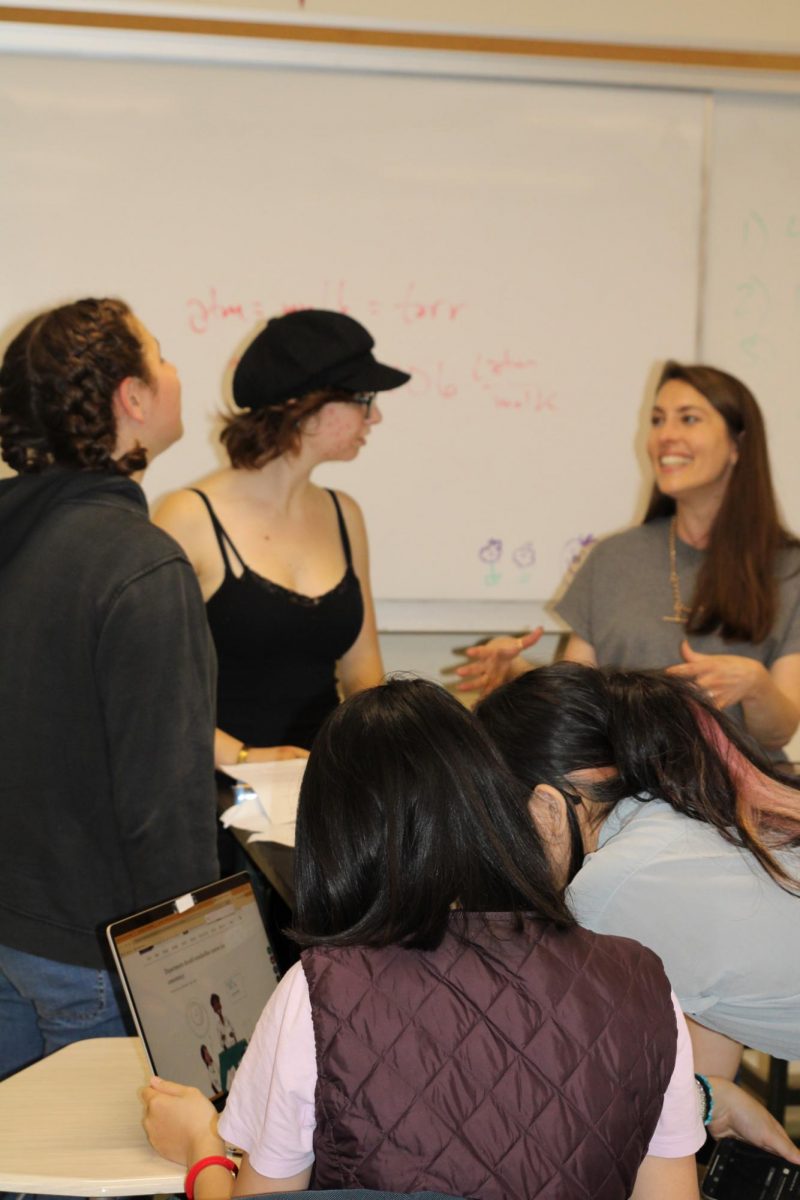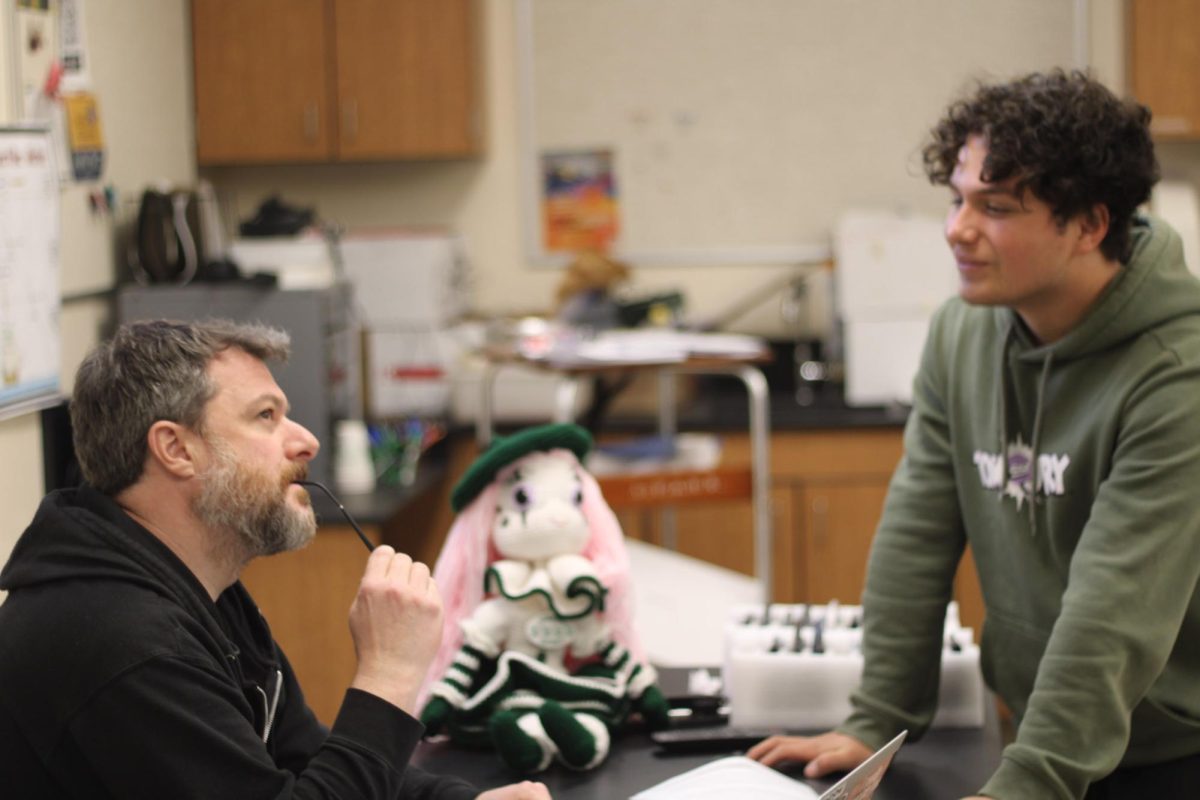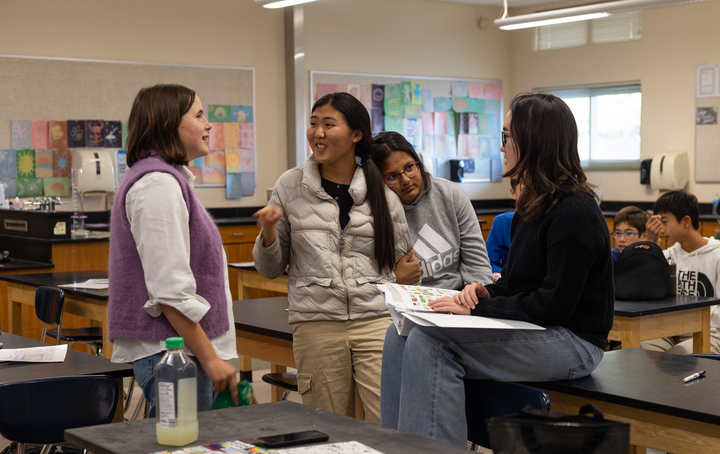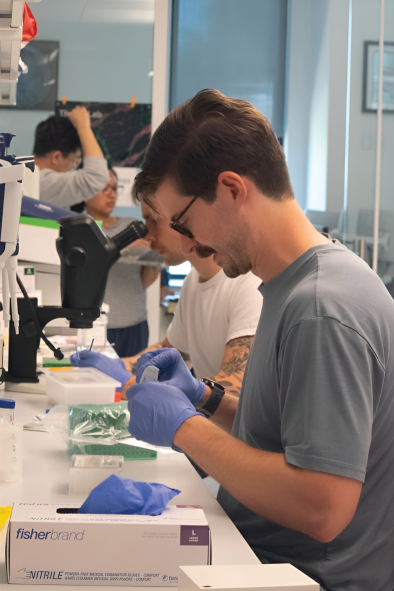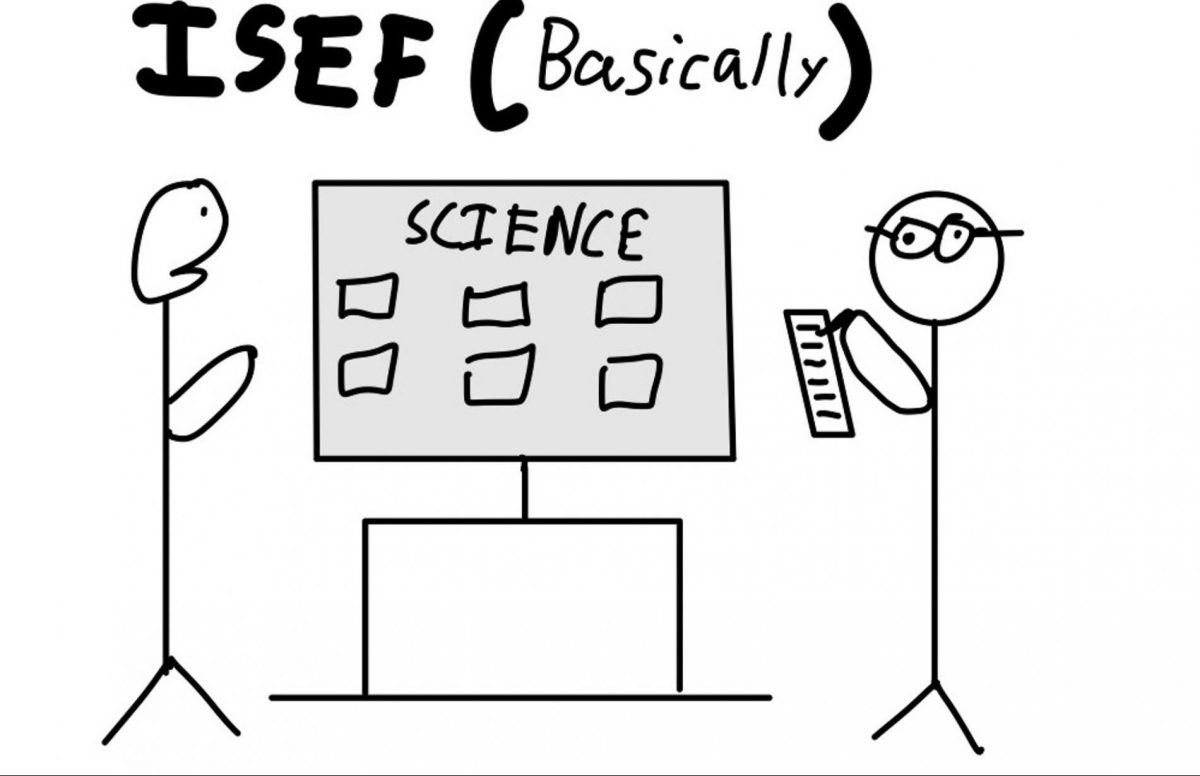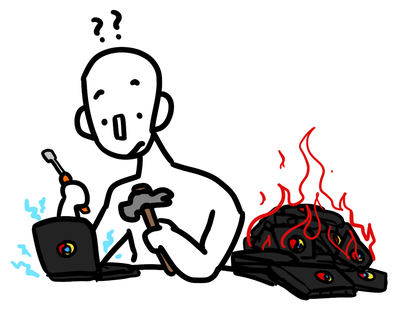“Every time I’m in her class she’s always talking to students about chemistry or about their lives,” sophomore Isabella Gronitzky said. “I think that’s a very nice aspect to having a teacher like her because it shows that they think more of you than just a student.”
Gronitzky was talking about Alicia Szebert, who returned to teaching Chemistry Honors at Palo Alto High School, after being gone last due to maternity leave. While she only teaches three periods she makes a huge impact on her students’ lives.
Szebert has been at Paly for nine years, but has been teaching three types of science classes for a total of 14 years: biology, chemistry, and environmental sciences.
Chemistry, the class Szebert currently teaches, is a class that a lot of students struggle with. However, for Szebert most types of science came easy. That was until she took AP Biology in her junior year of highschool.
“I [had] never struggled with science.” Szebert said. “As long as I put in the time and studied it, it [science] went well for me. It [AP Biology] was a very challenging course and it pushed me to figure out how to learn and study.”
The struggle didn’t deter her and only encouraged her to continue taking science courses and eventually become a science major, Szebert said. She ended up at UC Santa Barbara as an Environmental Science major. However, she quickly switched her major to Biology and later added a minor in Chemistry. College was also where Szebert found her love for teaching.
“I had classrooms of students that I would tutor [in college],” Szebert said.“Actually, the same class I’m teaching now, Chemistry. I really liked helping students with concepts that they didn’t understand.”
Szebert has been teaching science for a long time and while she doesn’t have a favorite field of science to teach, there is one that particularly stands out to her..
“I like chemistry because it tends to be a more challenging course,” Szebert said. “So watching students work to understand and the growth that comes with that is very rewarding as a teacher.”
While Szebert loves teaching science, as with all jobs, there are a lot of emotional and physical requirements with teaching. The biggest problem that resulted from teaching was exhaustion which often took a toll on her daily life. However, with the experience she has, these challenges have become a lot easier to overcome.
“The biggest challenge is just being exhausted because you give a lot of yourself emotionally to the job,” Szebert said. “However, you just get used to it. And with more experience in the job, the things that caused stress at the beginning, you figure out how to manage and get better at balancing everything.”
Despite all the challenges that come with her job, Szebert says she wouldn’t wish for any other job. In the end, she says, the results from teaching are worth the bumps she faces along the way.
“Teaching is extremely rewarding, and at the end of the day, science is an infinitely important field of study for society,” Szebert said. “I hope all my students become scientists, or at the least maintain a scientific perspective on the world.”

